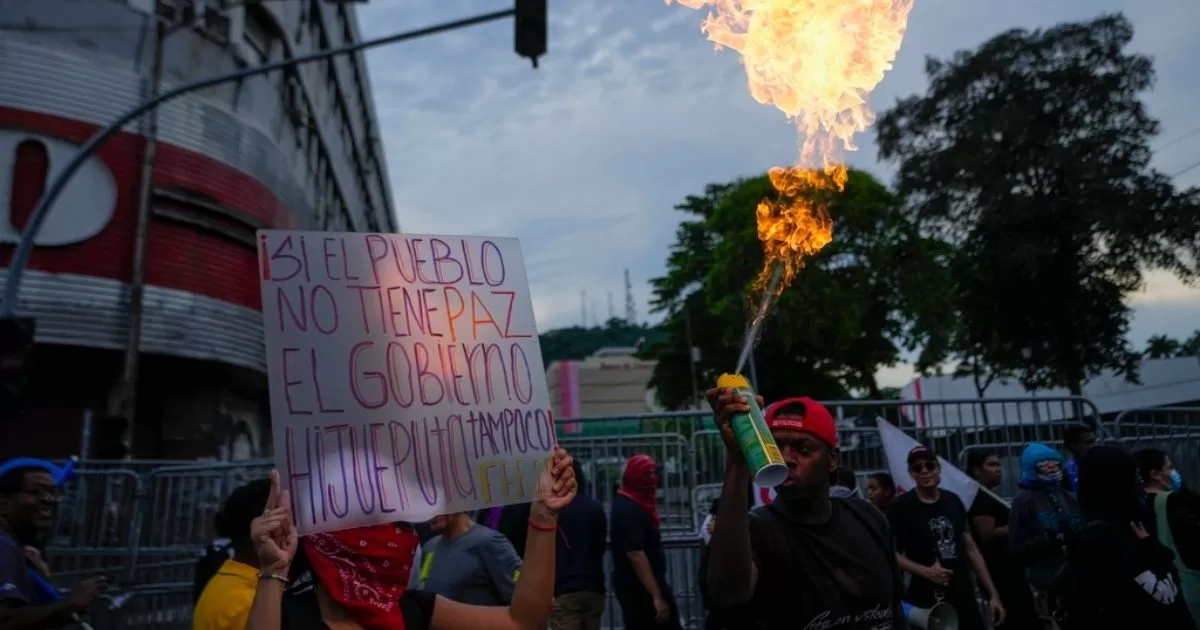CITY OF PANAMA- The elected president of Panama, José Raúl Mulino, proposed this Thursday to the Canadian company First Quantum Minerals to start a direct dialogue on the possible reopening of its mine in the Panamanian Caribbean, without international arbitration.
The company went to arbitration to obtain $20 billion in compensation for the closure of its mine, accused of damaging the environment, after protests that semi-paralyzed the country for more than a month at the end of 2023.
“Do not forget that the government is the owner of that concession (…), on that basis we can talk to definitively open (or) close” the Cobre Panamá mine, Mulino said in an interview with ArCa Media En Directo radio.
However, “I am not going to accept talking about a mine with these active arbitrations,” added the president-elect, who must take office on July 1.
Mulino’s words did not please environmentalist Guido Berguido, who indicated that the next president cannot negotiate the reopening of the mine, since there is an “indefinite mining moratorium law” approved by Congress on November 3.
protests
Protests demanding the closure of the mine broke out on October 20, the same day that the Panamanian Congress approved the concession contract law for 20 extendable years. The rule was immediately promulgated by President Laurentino Cortizo.
On November 28, the Supreme Court declared the concession contract “unconstitutional,” after which production was paralyzed and the government said it would implement a facility closure program, with no set date.
The mine also has a thermoelectric plant and a port for deep-draft ships.
Mulino clarified that in the event of a renegotiation, he will discard as a reference the contract signed by the current government.
“The only thing that will not be, for the national interest, is to repeat that contract or use it as a reference, that must be buried,” said the president-elect.
The mine, which began operations in February 2019, produced about 300,000 tons of copper concentrate annually since 2019, which represented 75% of Panama’s exports and 5% of its GDP.
In addition, it provided direct and indirect employment to around 40,000 workers. Only a few employees continue to work on maintenance tasks.
Environmental and union organizations accused the mine of causing severe damage to the environment and considered the minimum annual contributions of $375 million in royalties established by the contract to be insufficient.
Lower growth
The closure of the mine raised doubts about the safety of foreign investment in the country and put pressure on the Panamanian economy, which grew 7.3% in 2023, one of the highest rates in Latin America, but will fall to a third this year. year, according to experts.
The country is also facing a drought that threatens the income of the Panama Canal, while the Social Security Fund is on track to run out of money in 2025 to pay pensions to more than 310,000 Panamanians, according to economists.
In March, the financial agency Fitch lowered Panama’s rating (from BBB to BB+) due to the increase in public debt due to a “large fiscal deficit” (7.3% in 2023) and the “tense social context” due to the protests. decision that increases the interest on credits to the country.
Given these conditions, economists estimate that Mulino will have to make a “fiscal adjustment” that includes an increase in taxes, which would especially affect the Panamanian middle class, already hit by the high interest rates on mortgage loans and high gasoline prices. .
Source: AFP



